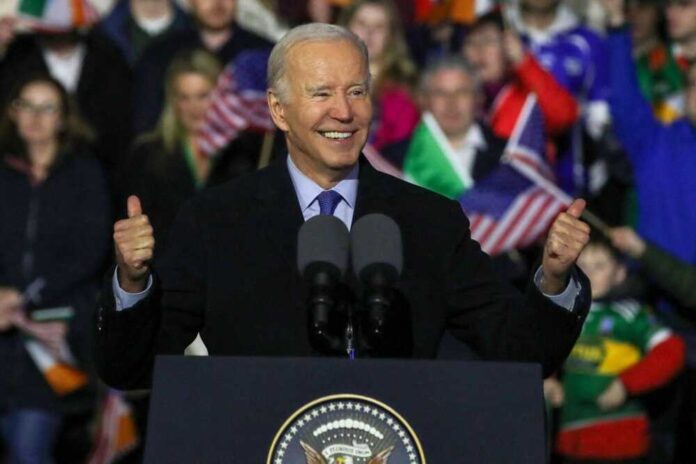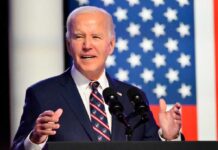
The Biden administration is refusing to engage House Speaker Kevin McCarthy (R-CA) in negotiations regarding the nation’s debt ceiling in a move that could have major political and economic implications.
The Republican effort would limit spending by $5 trillion over the next decade. The debt ceiling bill passed by the House would increase the debt limit by $1.5 trillion or the end of March 2024, whichever comes first.
The bill also puts a 1% limit on spending increases and caps discretionary spending to that of Fiscal Year 2022.
McCarthy’s bill included several compromises with conservative members of the Republican caucus, including work requirements to receive federal benefits to next year.
The House passed the plan by a narrow margin this week. All House Republicans voted for the bill except for four, including Rep. Andy Biggs (R-AZ) and Rep. Matt Gaetz (R-FL).
The bill’s future may be in political jeopardy. Getting it through the Democratic-controlled Senate would be a significant challenge. Furthermore, President Joe Biden stated that he would veto any such bill.
A White House spokesperson called the House debt plan an “attack on American manufacturing, American law enforcement and American families.” The White House described the House bill as including “tax giveaways.”
Gene Sperling, an adviser to the president, told CBS this week that passing such a law does not give Speaker McCarthy “the right to say that we want to have a discussion where it’s either my way or we will put the United States in default for the first time in our history.”
The bill’s passage was lauded by McCarthy, who said that “nobody could worry about whether the debt ceiling is going to get lifted, we did it.”
The move was also praised by Rep. Elise Stefanik (R-NY), the House GOP Conference Chair. The New York Republican said that the House was the only chamber of Congress “that has done our job.”
She added that both Sen. Chuck Schumer (D-NY) and President Biden must come to “the negotiating table.”
The @HouseGOP debt ceiling plan to limit spending $5 trillion over 10 yrs: return fed bureaucracy to pre-Covid levels, end unfair bailout of student loans, require able-bodied Americans to work, & end corporate crony “green” handouts to China. #LimitSaveGrow #ShrinkDCGrowAmerica pic.twitter.com/PH9Ug1mKZD
— Chip Roy (@chiproytx) April 28, 2023
Schumer also called the bill “dead on arrival.”
The House Speaker told CNBC that his plan would have a number of significant benefits.
The bill would repeal portions of the Inflation Reduction Act. McCarthy believes that these and other provisions would make the United States “less dependent” on China and will reduce inflation. McCarthy said that debt could be reduced without cuts to Social Security or Medicare.































